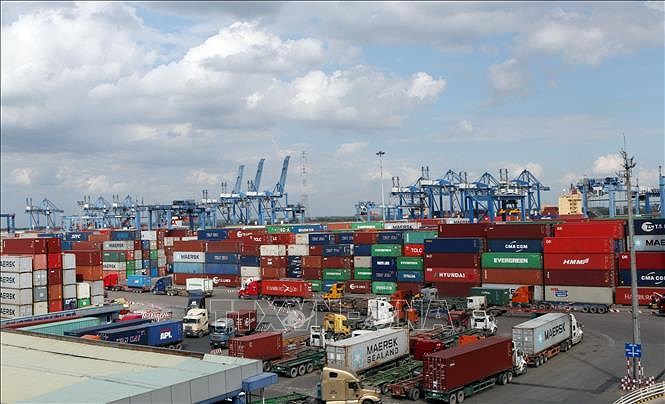Vietnam’s success in the fight against COVID-19 and its overall stability have increased its competitiveness and resulted in positive outcomes in foreign direct investment (FDI) attraction since the start of the year, Director of the Foreign Investment Agency under the Ministry of Planning and Investment, Do Nhat Hoang, has said.
 As of April 20, foreign investors had pumped 12.25 billion USD into Vietnam (Photo: VNA)
As of April 20, foreign investors had pumped 12.25 billion USD into Vietnam (Photo: VNA)Vietnam’s success in the fight against COVID-19 and its overall stability
have increased its competitiveness and resulted in positive outcomes in foreign
direct investment (FDI) attraction since the start of the year, Director of the
Foreign Investment Agency under the Ministry of Planning and Investment, Do
Nhat Hoang, has said.
The
country needs to further capitalise on its strengths, potential, and opportunities
to absorb future investment, he added.
Vietnam clearly
exhibits stability in its macro-economic and political situations and boasts a
high level of prestige in investment attraction, as the number of large-scale energy
and processing-manufacturing projects applying high technology in key sectors
has been on the rise.
As of April
20, foreign investors had pumped 12.25 billion USD into Vietnam this year,
equal to 99.3 percent of the amount recorded in the same period last year.
Among the
67 countries and territories with investment projects during the period,
Singapore led with 4.8 billion USD, followed by Japan with more than 2.5
billion USD and the Republic of Korea with 1.5 billion USD.
The
country is also working to attract projects from Europe and the US.
Various
incentives for FDI investors have been launched, along with opportunities brought
about by new generation free trade agreements Vietnam has signed. The
Government has also exerted efforts in administrative reforms and in improving the
investment climate.
Meanwhile,
relevant agencies have been advised to call for investment from multinational corporations
with strengths in capital and technology, thus helping domestic companies access
modern technologies and work with foreign counterparts in further joining
global value chains.
Localities
must revise their legal documents and investment policies to address any inconsistencies
and should take the initiative in choosing projects that match their own potential
and investment orientation.
Priority
should be given to hi-tech, energy and space-saving, and environmentally-friendly
projects./.